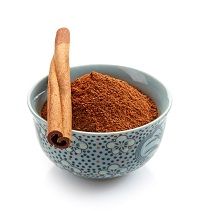Article
A Dash of Spicy Cinnamon to Prevent Colorectal Cancer?
Author(s):
The main component of spicy cinnamon, cinnamaldehyde was recently found to protect colorectal cancer in mice.

The main component of spicy cinnamon, cinnamaldehyde was recently found to protect colorectal cancer in mice.
Research led by the University of Arizona College of Pharmacy Department of Pharmacology and Toxicology’s Georg Wondrak, PhD, and Donna Zhang, PhD, along with the UA Cancer Center, administered the cinnamaldehyde compound to their mice models to observe the animals’ responses to exposure to carcinogens.
Upon optimizing colorectal Nrf2 activation and target gene expression by cinnamaldehyde, the study results indicated that cinnamaldehyde actually suppresses inflammatory colon carcinogenesis.
The study has already been published online and is slated to appear in the spring print edition of Cancer Prevention Research.
Wondrak and Zhang, “explored the molecular mechanism underlying CA-induced Nrf2 activation in colorectal epithelial cells and have examined the chemo preventive potential of CA in a murine colorectal cancer model comparing Nrf2+/+ with Nrf2−/− mice”.
Wondrak commented, “Given cinnamon’s important status as the third-most—consumed spice in the world, there’s relatively little research on its potential health benefits. If we can ascertain the positive effects of cinnamon, we would like to leverage this opportunity to potentially improve the health of people around the globe.”
Wondrak acknowledged the next steps would be to see whether cinnamon as well as cinnamaldehyde could be an effective cancer preventative treatment. “And can we use cinnamaldehyde or cinnamon as a weapon to go after other major diseases, such as inflammatory dysregulation and diabetes? These are big questions to which we might be able to provide encouraging answers using a very common spice.”





